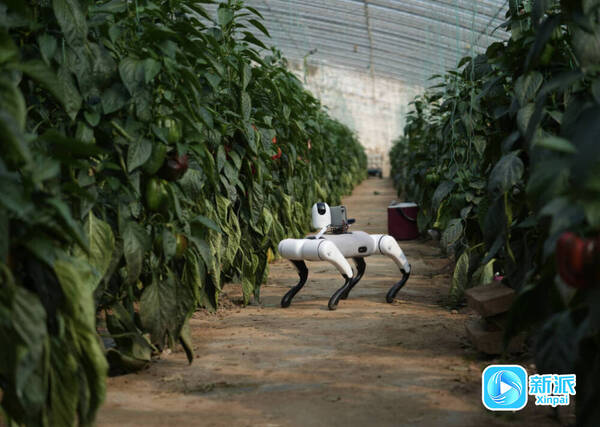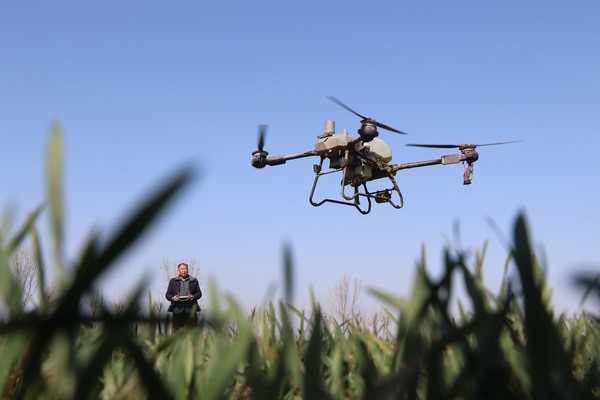AI, innovation transform Weifang agriculture
Weifang is using artificial intelligence to unlock new possibilities and efficiency gains in its agriculture. With cutting-edge technology integrated into farming practices, Weifang is paving the way for smarter and more sustainable agricultural methods.
In Shouguang, a county-level city in Weifang and a leader in modern agriculture, AI is already at work in greenhouses. Robotic dogs conduct routine inspections to monitor crop growth and pest management. These AI-powered systems provide farmers with real-time, data-driven insights, helping them make informed decisions on planting and pest control.

A robotic dog conducts routine inspections at a green house in Shouguang, Weifang. [Photo/Xinpai]
This integration of AI isn't limited to automated inspections; it extends to smarter, more efficient systems in the fields. In Changyi, spring sowing operations have become more intelligent and labor-efficient, thanks to precision irrigation systems and smart monitoring. The advanced irrigation setup ensures that crops get the right amount of water, while a big data platform tracks soil moisture, plant health, and pest conditions in real time.

A farmer uses a drone to spray pesticides over wheat fields in Weifang. [Photo/VCG]
Weifang is also seeing the rise of innovative farming models, such as the "fish-vegetable symbiosis" technique at Xinhuihai family farm in Anqiu. This method allows fish to naturally fertilize vegetables without cycling the water, while organic fertilizers further enhance plant growth. By incorporating high-tech solutions like planting lights and smart hydroponic systems, the farm has reduced production costs by over 20 percent and increased yields. This pioneering approach is not only driving productivity but also promoting more sustainable farming practices.
As AI continues to transform farming in Weifang, the city is setting a benchmark for sustainable, technology-driven agriculture, blending tradition with innovation for a smarter, more efficient future.
